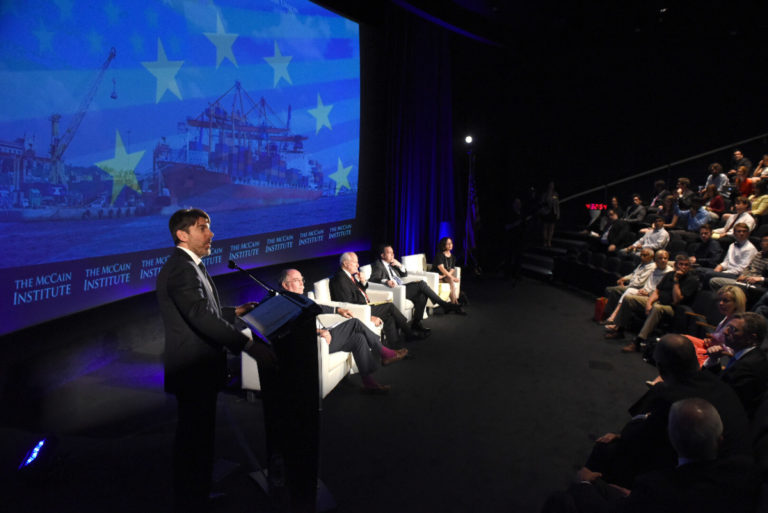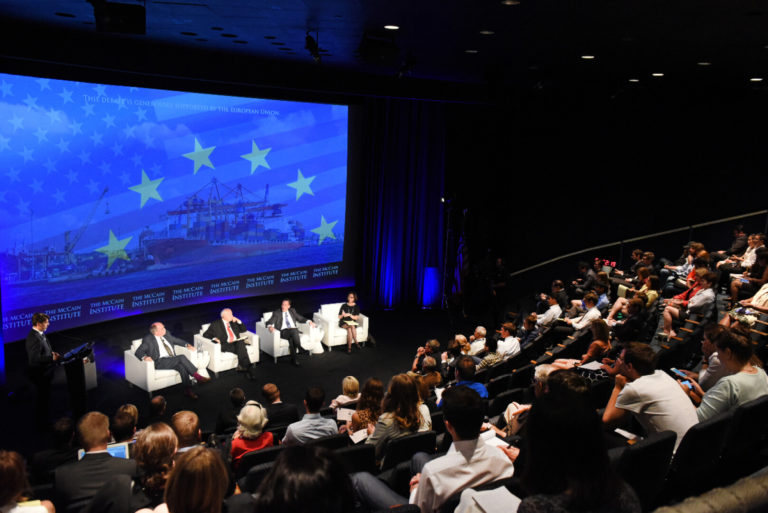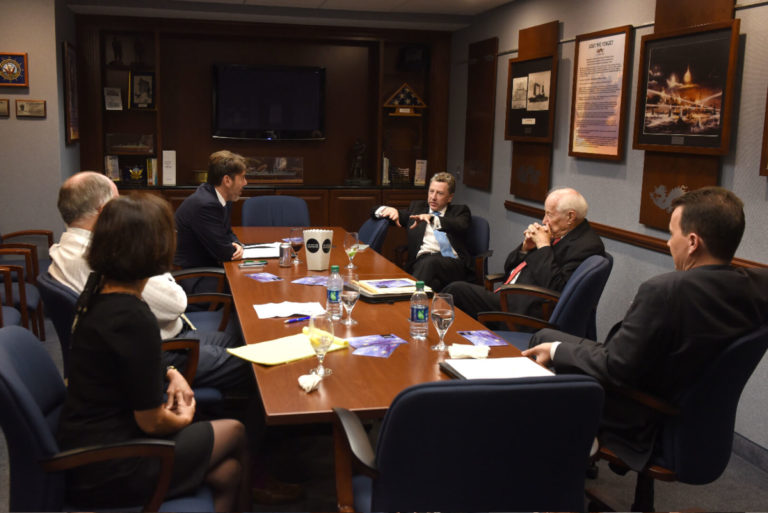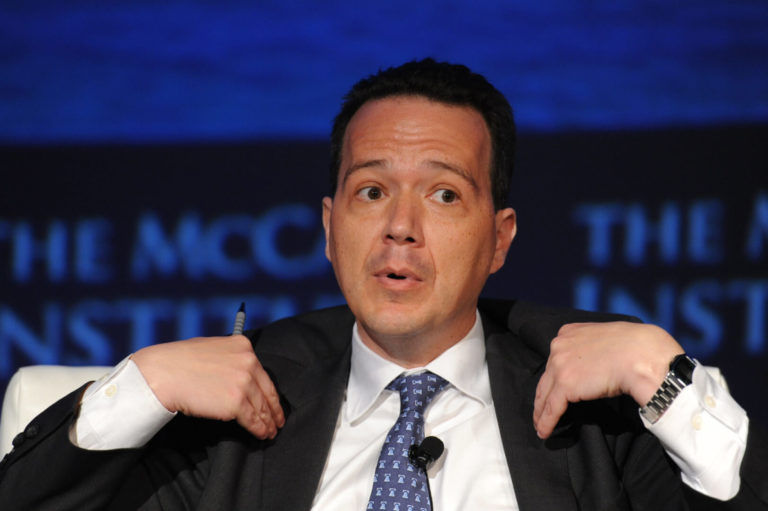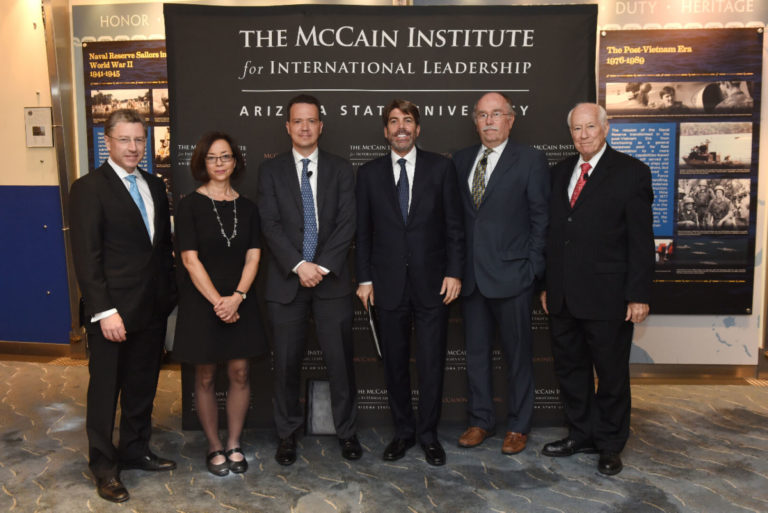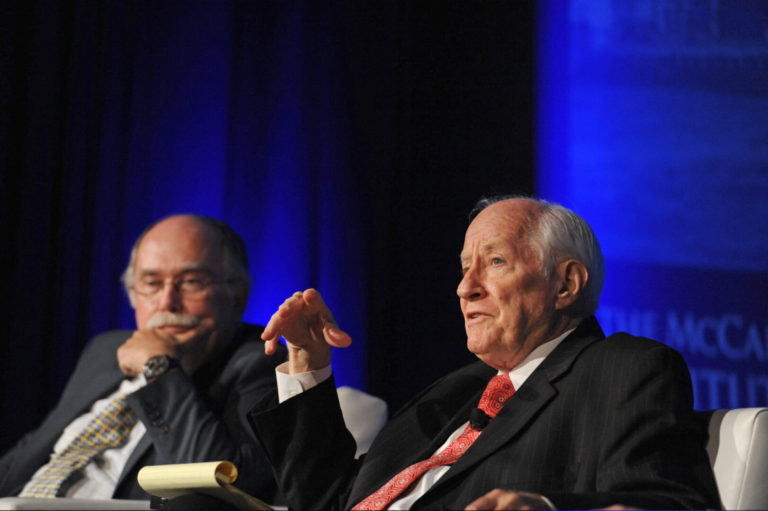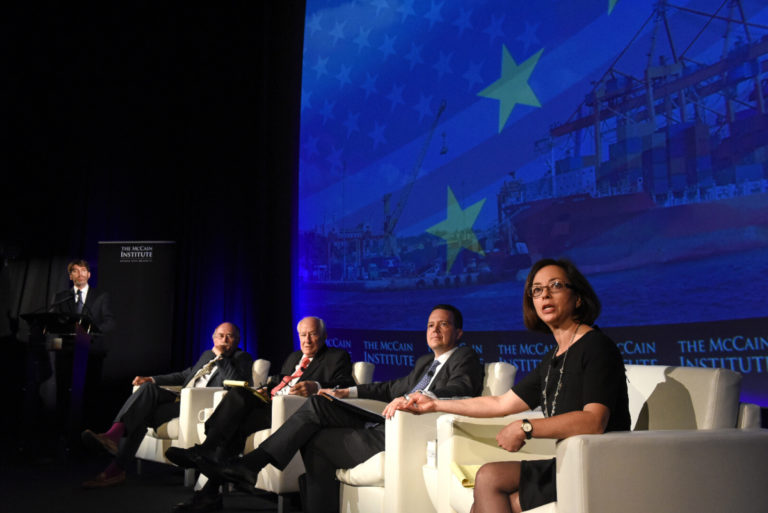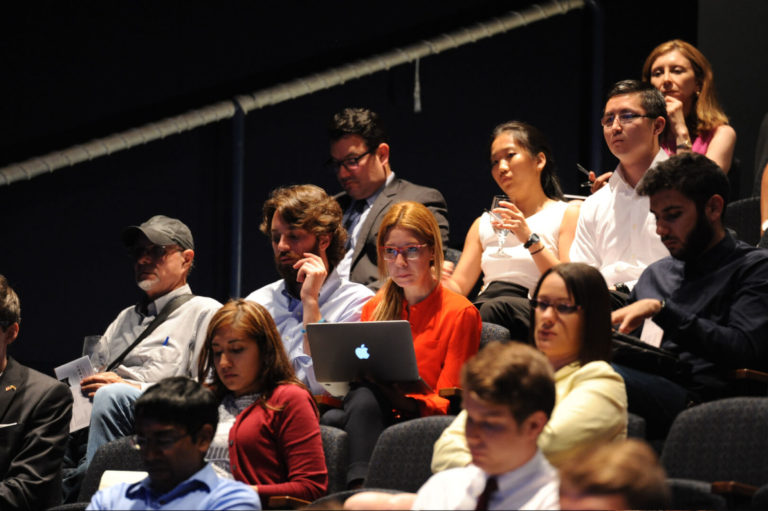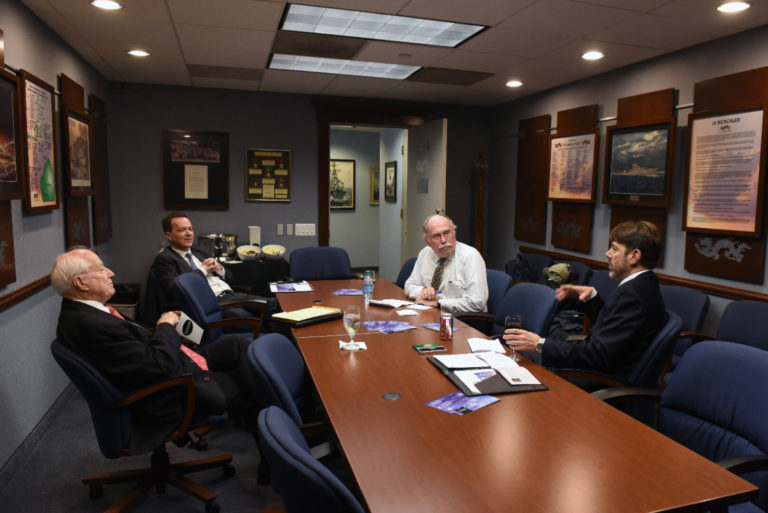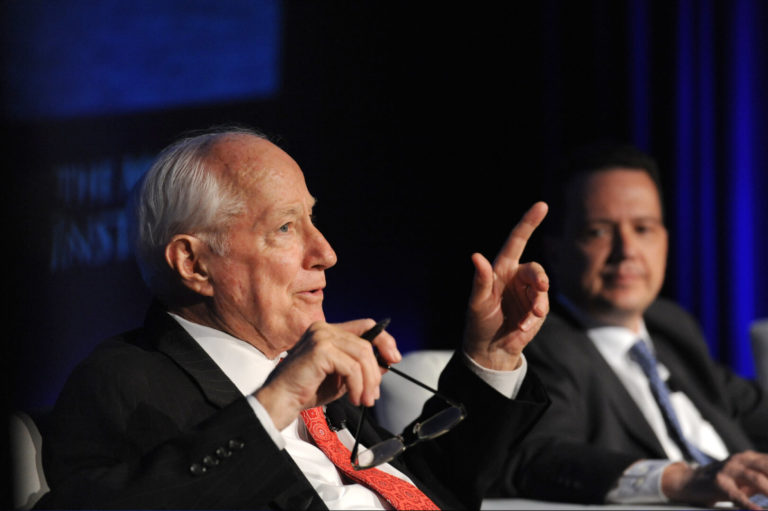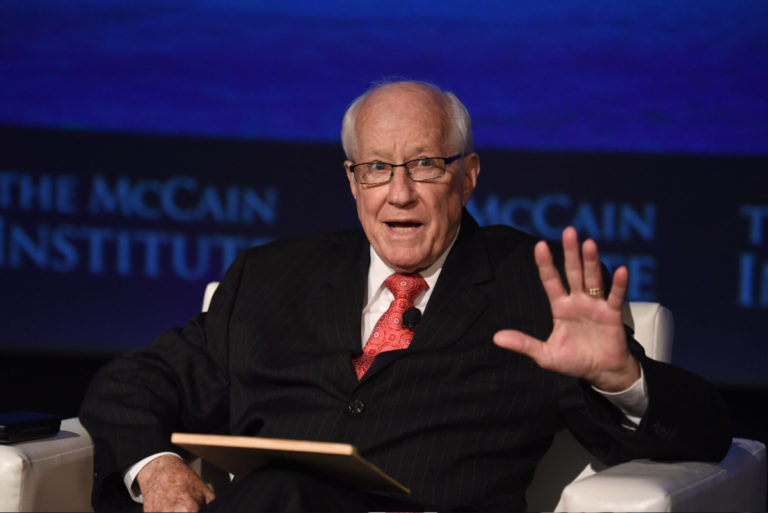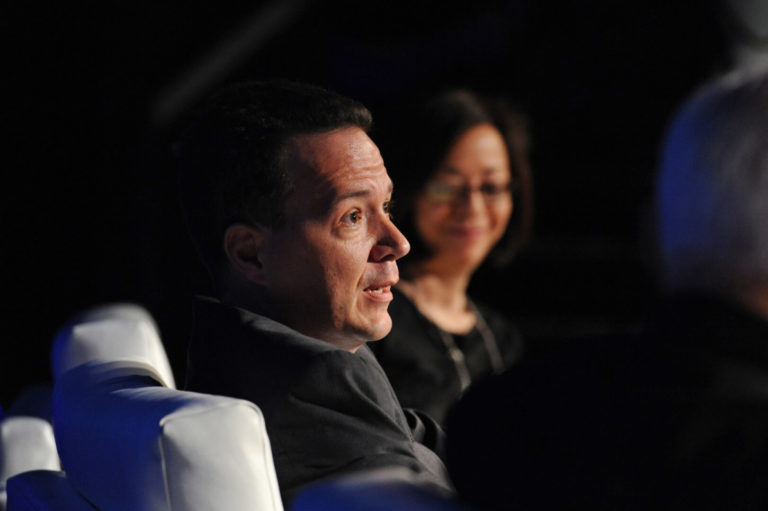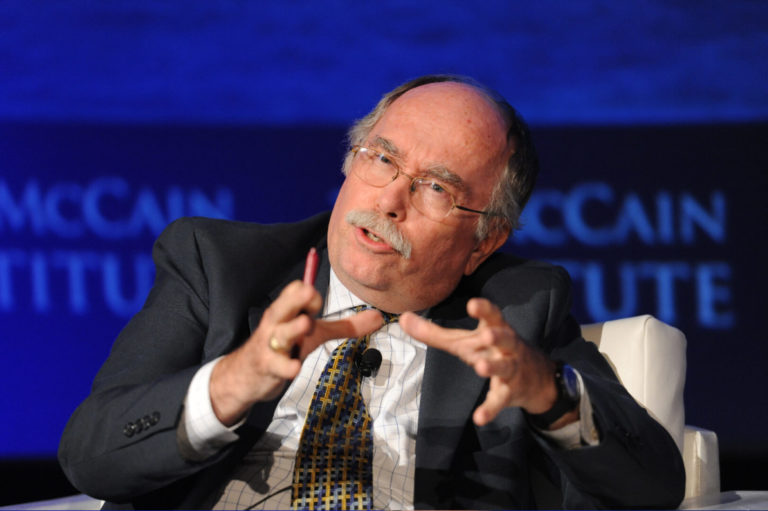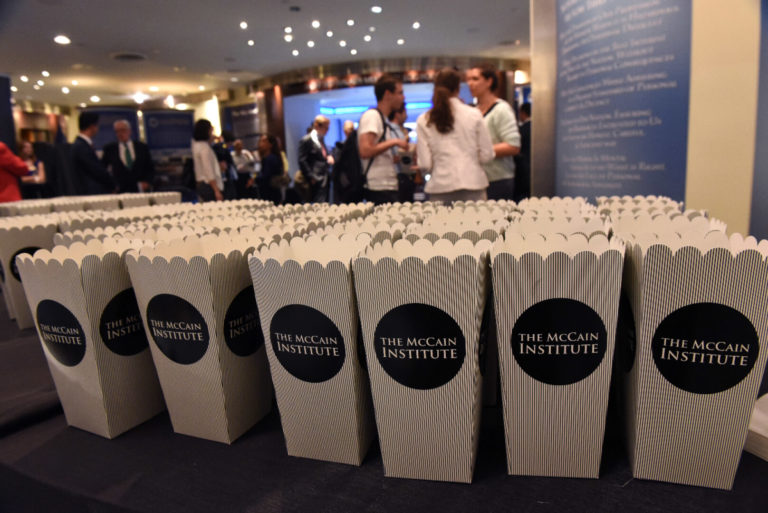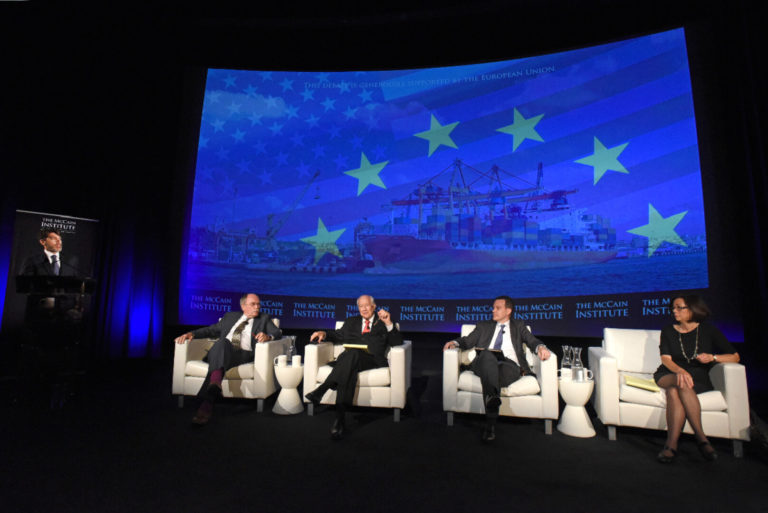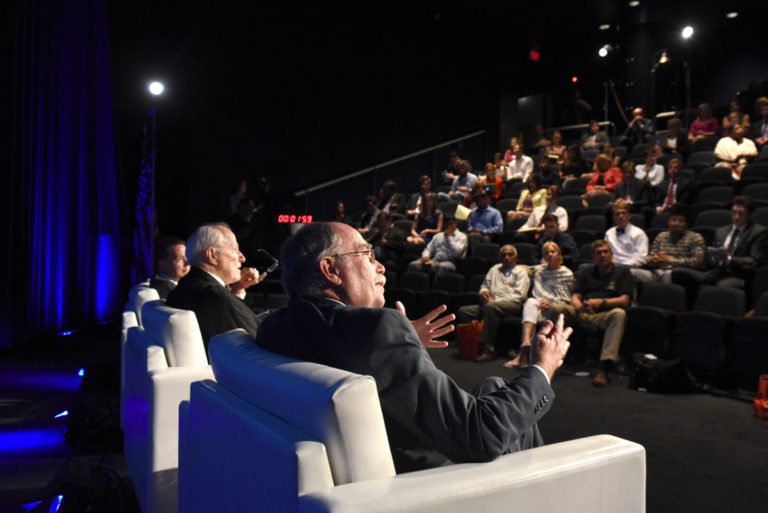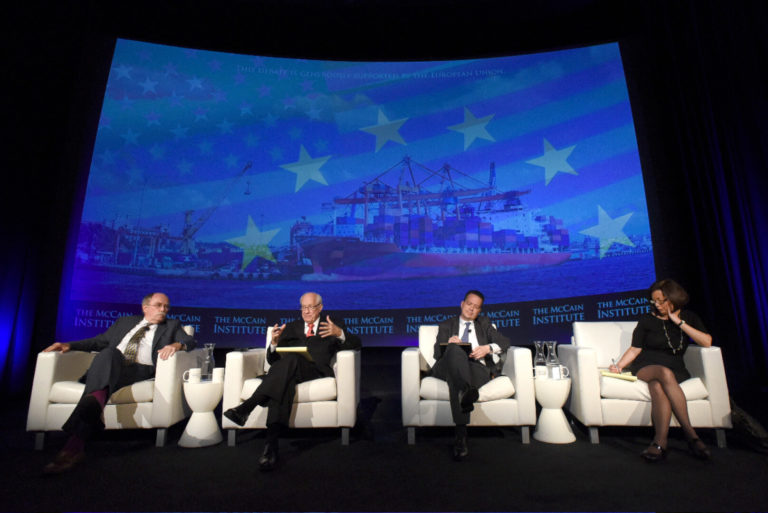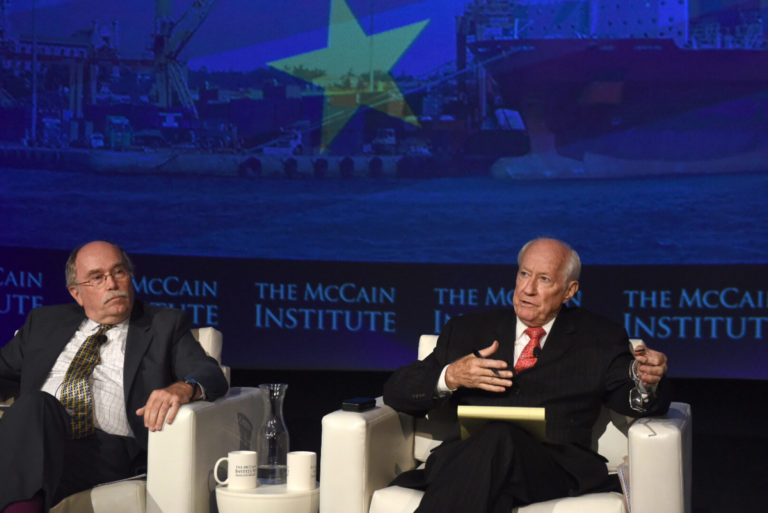Event Summary
THE DEBATE:
On Monday, June 22, the McCain Institute for International Leadership at Arizona State University hosted the debate: “A New Transatlantic Trade Deal: Good for America?” at the Burke Theater at the Navy Memorial, in Washington, DC.
The debate centered on the Transatlantic Trade and Investment Partnership (TTIP) between the United States and the European Union, and whether such an agreement would be positive for American jobs, growth, labor standards, and the environment.
THE DEBATERS:
Arguing in favor of an ambitious and comprehensive TTIP deal were Shaun Donnelly, Vice President of Investment and Financial Services at the United States Council for International Business (USCIB); and Jim Kolbe, former U.S. Congressman and Senior Transatlantic Fellow at the German Marshall Fund (GMF).
Arguing against an ambitious and comprehensive TTIP deal were Ted Bromund, Senior Research Fellow at the Heritage Foundation; and Thea Lee , Deputy Chief of Staff, AFL-CIO.
Jon Decker, White House Correspondent at Fox News Radio, moderated the debate.
THE TAKE AWAY:
Key points made in favor of TTIP:
- Europe is already our largest trading partner, with $6.5 trillion going back and forth in trade a year. A free trade agreement with the EU would boost U.S. exports to three billion dollars annually and increase the purchasing power of American families by cutting costs by $900 per year.
- TTIP is an opportunity for two big industrial democracies/economies to boost their competitiveness and set global rules through harmonizing regulations. Since EU and US standards are already high, these could, over time, also help set global norms for other countries such as China.
- TTIP is a way to kick-start the broader multilateral trade agenda that has been stalled in the WTO. TTIP would represent a new template for modern trade agreements.
Key points made against TTIP:
- The economic benefits of TTIP are oversold; in reality, TTIP will only have a marginal economic impact. The main reason for this is trade barriers across the Atlantic are already very low. Most of the predicted benefits come from regulatory convergence rather than tariff reduction.
- Compared to previous trade agreements, TTIP is different in that its major impact is likely to be rules convergence rather than tariff reduction. While harmonizing rules could be useful for certain industries (such as pharmaceuticals and automobiles), for others it would only add new regulations, increasing costs for American manufacturers and consumers. Harmonization could also occur outside of TTIP and thus be more flexible down the road. To the extent that harmonization of regulations occurs through downward convergence, concerns were raised that TTIP could undermine essential consumer, labor, and environmental protections.
- The TTIP negotiations suffer from a lack of openness and transparency. The U.S. government in particular has failed to provide the public with adequate information about its own goals and negotiating position. Labor and environmental groups have argued that corporations have been too influential in setting the negotiating agenda
THE RECOMMENDATIONS:
Thea Lee argued that the U.S. should drop the investor-state dispute settlement mechanism (ISDS) from the negotiation mandate because it is not necessary between two advanced economies such as the U.S. and the EU. The negotiators should also become more transparent and increase input from consumer, labor, and environmental groups on trade harmonization issues.
Ted Bromund made the point that free trade already exists across the North Atlantic area. Rather than pursuing an ambitious and comprehensive TTIP, negotiators should focus on eliminating all remaining tariffs and quotas and agree to mutually recognized standards only when they make sense – not across the board. Rather than rules convergence, regulators should focus on de-regulation.
Jim Kolbe said the most immediate action needed is for Congress to pass Trade Promotion Authority (TPA) so the President can proceed with concluding negotiations on TTIP.
Shaun Donnelly called for Congress to pass TPA and then for the Administration to negotiate an ambitious TTIP agreement that would include the ISDS clause because investment is a key component of transatlantic commerce.
SPEAKERS
Shaun Donnelly
Vice President of Investment and Financial Services at the United States Council for International Business
Jim Kolbe
Former U.S. Congressman and Senior Transatlantic Fellow at the German Marshall Fund
Ted Bromund
Senior Research Fellow at the Heritage Foundation
Thea Lee
Deputy Chief of Staff
